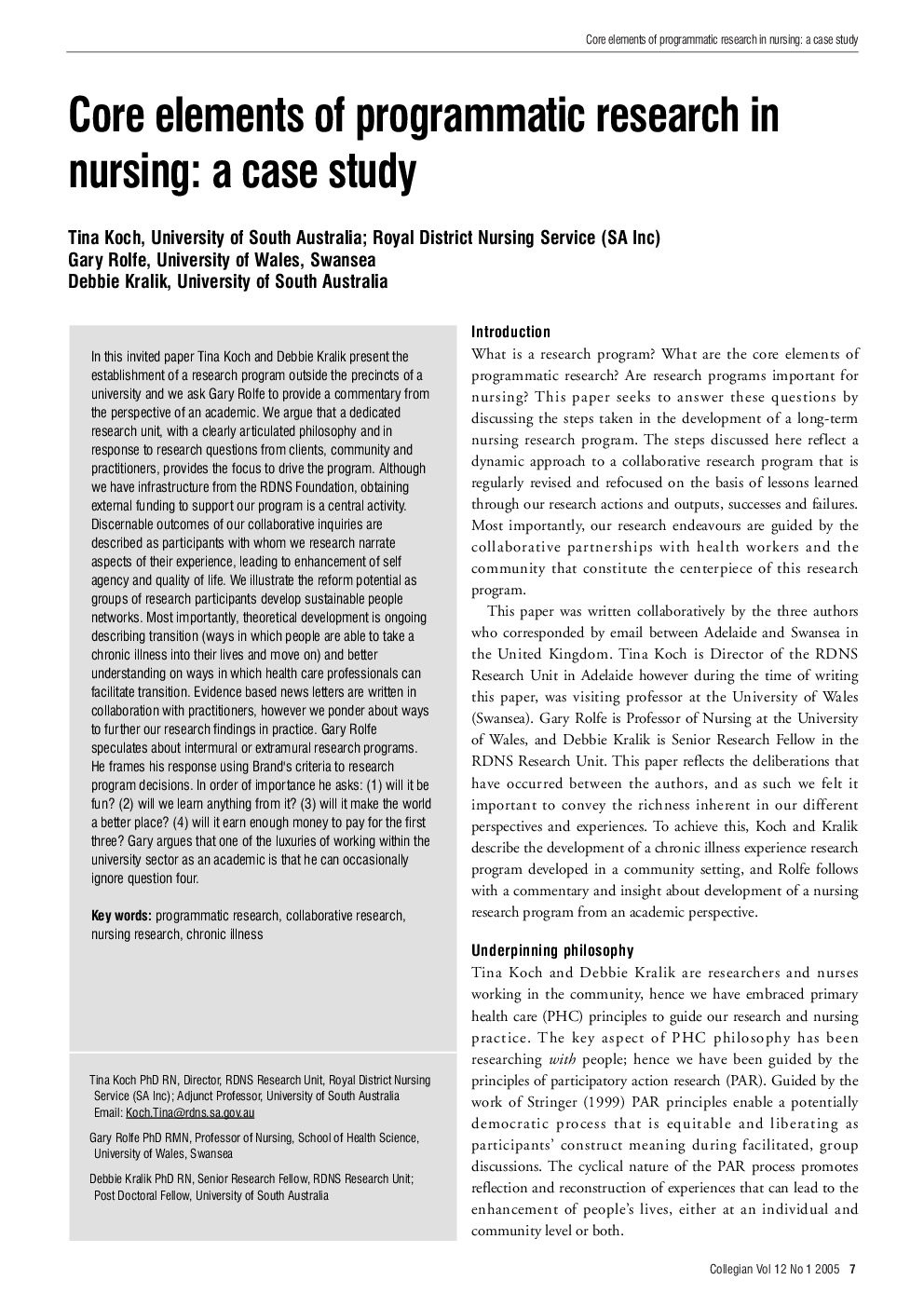| Article ID | Journal | Published Year | Pages | File Type |
|---|---|---|---|---|
| 9056195 | Collegian | 2005 | 6 Pages |
Abstract
In this invited paper Tina Koch and Debbie Kralik present the establishment of a research program outside the precincts of a university and we ask Gary Rolfe to provide a commentary from the perspective of an academic. We argue that a dedicated research unit, with a clearly articulated philosophy and in response to research questions from clients, community and practitioners, provides the focus to drive the program. Although we have infrastructure from the RDNS Foundation, obtaining external funding to support our program is a central activity. Discernable outcomes of our collaborative inquires are described as participants with whom we research narrate aspects of their experience, leading to enhancement of selt agency and quality of life. We illustrate the reform potential as groups of research participants develop sustainable people networks. Most importantly, theoretical development is ongoing describing transition (ways in which people are able to take a chronic illness into their lives and move on) and better understanding on ways in which health care professionals can facilitate transition. Evidence based news letters are written in collaboration with practitioners, however we ponder about ways to further our research findings in practice. Gary Rolfe speculates about intermural or extramural research programs. He frames his response using Brand's criteria to research program decisions. In order of importance he asks: (1) will it be fun? (2) will we learn anything from it? (3) will it make the world a better place? (4) will it earn enough money to pay for the first three? Gary argues that one of the luxuries of working within the university sector as an academic is that he can occasionally ignore question four.
Related Topics
Health Sciences
Medicine and Dentistry
Public Health and Health Policy
Authors
Tina PhD RN, Director, RDNS, Gary (Professor of Nursing), Debbie (Senior Research Fellow),
